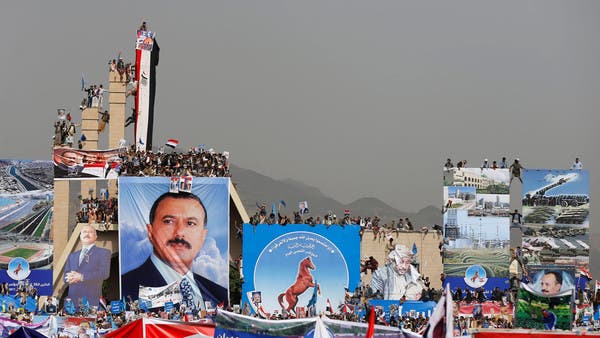The seemingly endless Syrian civil war is sometimes presented as a backhanded tribute to the resilience of the al-Assad regime. But the precedent for regime survival in the wake of the Arab Spring through the use of force was set not by Bashar al-Assad, but by Yemeni president Ali Abdullah Saleh.
Now of course Saleh is not officially in power in Yemen these days, instead in an awkward coalition with the Houthi-led de facto government in Sanaa while the internationally recognized government in Aden relies on external military force for its authority. Yet the fact that Saleh is still a force in Yemen at all is astounding, given that he was seriously injured in a mysterious explosion at his palace in June 2011, and formally (if reluctantly) resigned at the end of that year, with the circumstances of his return from Riyadh to Yemen never fully explained.
Anyway, he has remained a key power broker since then, with the current internal crisis in the governing alliance triggered by concerns that he could be reinstalled as President as a way to break the military stalemate that has been a disaster for the Yemeni people. The photo above shows a large pro-Saleh demonstration held in Sanaa last week.
In terms of timeline, the Al-Assads were barely getting started on their war when Saleh, already dealing with insurrection for years, was nearly killed in that June 2011 attack. And he's done it with no obvious source of external support. The lesson is that for leaders ruthless and calculating enough, it's very very difficult to remove them, even in dire circumstances for their country.
Photo via Al Arabiya.

No comments:
Post a Comment